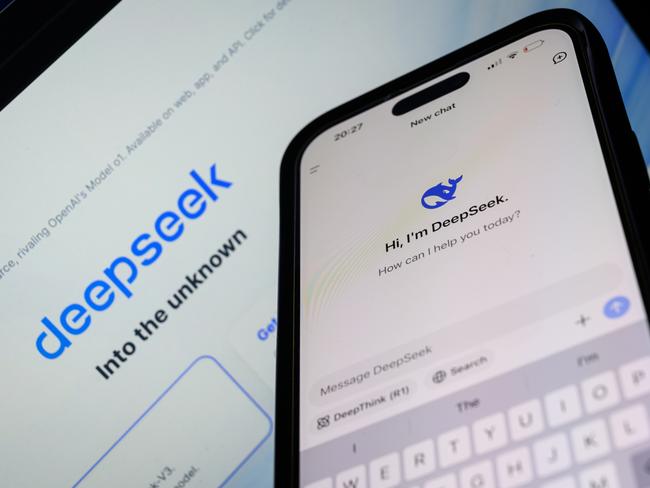Public servants found accessing Chinese AI app DeepSeek hundreds of times after Federal Government ban


Labor ministers Ed Husic and Claire O’Neil came out in January with very public concerns over China’s ChatGPT rival, DeepSeek, urging Australians to take caution before downloading the product – even just to razz the little whale about China’s three forbidden Ts: Taiwan, Tibet, and Tiananmen.
About one week later, on February 4, the Department of Home Affairs went further and released a mandatory direction to all government entities instructing them to prevent “the use or installation of DeepSeek products, applications and web services”. In effect, a ban on DeepSeek had come into force.
Or had it?

Figures released by the Department of Prime Minister and Cabinet this week reveal that public servants were still leaning heavily into DeepSeek for another two weeks after that order, using their government-owned devices.
Banned or otherwise, combined visits to the AI helper between December 1, 2024, and February 15, 2025, added up to 389 “hits” from PM&C computers, phones, tablets, as well as those belonging to the Australian Public Service Commission. If Anthony Albanese’s policy pronouncements sounded sharper during that period, well, now you know why.
“As a general matter, a hit is a request for a file such as a web page, image, JavaScript, or CSS hosted on a web server,” the PM&C office said. “A single visit to a website may result in many hits depending on the complexity of a particular web page, and how many resources it requires to be downloaded in order to display.”
In other words, it could have been 389 employees having a go with the app, or a single bureaucrat who kept sending his advice through for a tune-up (most likely to Beijing).
And maybe asking too many questions about what happened to that man who stood in front of the tank that time.
Cash is king?
Are you a fan of hard currency? Is life just better without EFTPOS terminals, with goods that can be bought with a fiver or a fiddy?
For two years, James Bryce, a finance journalist, has led a movement to revive the cash economy. He’s been urging people to draw down funds from ATMs, on a nominated date, in a sort of protest against the decline of cash and its usage.
Cash Welcome is the name of his initiative and, no surprise, it works in co-operation with the ATM Industry Association. ATMIA’s job is to promote the “entire global ATM industry”, according to its website, so they obviously have absolutely no dog in this fight to keep cash in circulation and people paying those exorbitant fees. None at all.
The tabloid press loves a tale of people-power. Last year, Bryce’s work and his plucky rise as figurehead of this movement received generous coverage on Seven’s Sunrise program, across Nine’s radio network, and even the Daily Mail found space to give him a plug between its sedulous reporting of all things T&A.
Same thing this year ahead of the much-ballyhooed withdrawal date, set for Easter Tuesday. Rainmaker Bryce had envisioned it would deliver a confetti of currency; an expected “two million Australians”, he said, would drain their accounts in a vote against a “cashless future”. Eeeyeah, that’s not quite how it worked out.
The major banks actually reported a 20 and even 30 per cent reduction in cash withdrawals at their ATMs compared with either the previous Tuesday or with the same Tuesday, on April 22, a year ago.
Perhaps this counter-revolution needs another few years to build momentum. But what’s the point? By that time we’ll be paying each other using telepathic nanotech that runs on $TRUMP coin.
Anyway, have the people spoken yet?






To join the conversation, please log in. Don't have an account? Register
Join the conversation, you are commenting as Logout